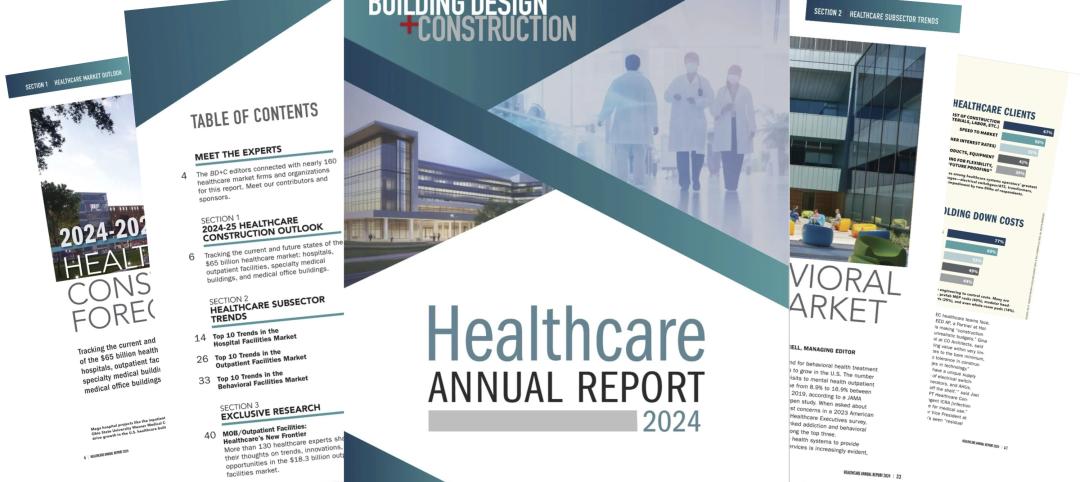In recognition of the importance of sustainable parking facilities and practices to the development of sustainable communities, the Green Building Certification Institute (GBCI), the certification body for the U.S. Green Building Council’s global LEED green building rating system, today signed a memorandum of understanding (MOU) with the International Parking Institute (IPI), the world’s largest parking association, and the Green Parking Council (GPC).
“Sustainability in parking is integral to building a greener future, not only structurally, but also by shaping transportation networks that support more livable, walkable communities,” said Mahesh Ramanujam, president, GBCI. “This agreement will also expand the GBCI’s portfolio and mission to recognize excellence in green performance and practice.”
The three organizations will work in a strategic partnership for the delivery and promotion of the GPC’s recently launched Green Garage Certification program, which applies to both new and existing parking structures.
Green Garage Certification was developed by experts from a range of related fields, including parking, architecture, engineering, technology, property management, and academia. It assesses 50 elements of parking facility sustainability, including management practices that maximize performance while minimizing waste; programs encouraging alternate modes of transportation and community engagement; and efficient and sustainable technology and structure design.
“This is a game-changer,” explained John Schmid, chairman of GP, an affiliate of IPI. “Collaborating with the GBCI will result in a multiplier effect, dramatically increasing awareness of sustainable parking design, operations, and management. This is an epic moment for parking and a giant leap forward toward a more environmentally and economically sustainable garage of the future”
“With GPC’s Green Garage Certification standards, IPI’s established focus on education related to sustainability, and GBCI’s distribution channels all working in sync, we’re enthusiastic that we can mainstream sustainable parking,” said Shawn Conrad, CAE, IPI’s executive director. “We are confident that will have a positive, far-reaching effect on the environment.”
Related Stories
Codes and Standards | Jul 15, 2024
New York City code update changes definition of a major building
Changes affecting how construction projects in New York City are permitted will have significant impacts for contractors. On Dec. 11, the definition of a major building in the city’s code will change from 10 stories to seven, or 75 feet. The change will affect thousands more projects.
Adaptive Reuse | Jul 12, 2024
Detroit’s Michigan Central Station, centerpiece of innovation hub, opens
The recently opened Michigan Central Station in Detroit is the centerpiece of a 30-acre technology and cultural hub that will include development of urban transportation solutions. The six-year adaptive reuse project of the 640,000 sf historic station, created by the same architect as New York’s Grand Central Station, is the latest sign of a reinvigorating Detroit.
University Buildings | Jul 11, 2024
3 considerations for designing healthy, adaptable student dining
Amanda Vigneau, IIDA, NCDIQ, LEED ID+C, Director, Shepley Bulfinch, shares three ways student dining facilities have evolved to match changes in student life.
Healthcare Facilities | Jul 11, 2024
New download: BD+C's 2024 Healthcare Annual Report
Welcome to Building Design+Construction’s 2024 Healthcare Annual Report. This free 66-page special report is our first-ever “state of the state” update on the $65 billion healthcare construction sector.
Transit Facilities | Jul 10, 2024
Historic Fresno train depot to be renovated for California high speed rail station project
A long-shuttered rail station in Fresno, Calif., will be renovated to serve as the city’s high speed rail (HSR) station as part of the California High-Speed Rail Authority system, the nation’s first high speed rail project. California’s HSR system will eventually link more than 800 miles of rail, served by up to 24 stations.
Government Buildings | Jul 8, 2024
GSA adopts new accessibility guidelines for federal properties
The U.S. General Services Administration (GSA) adopted a new rule with new accessibility guidelines for federal buildings. The rule establishes that pedestrian facilities in the public right-of-way are readily accessible to and usable by people with disabilities.
Office Buildings | Jul 8, 2024
Office vacancy peak of 22% to 28% forecasted for 2026
The work from home trend will continue to put pressure on the office real estate market, with peak vacancy of between 22% and 28% in 2026, according to a forecast by Moody’s.
Virtual Reality | Jul 8, 2024
Can a VR-enabled AEC firm transform your project?
With the aid of virtual reality and three-dimensional visualization technologies, designers, consultants, and their clients can envision a place as though the project were in a later stage.
Green | Jul 8, 2024
Global green building alliance releases guide for $35 trillion investment to achieve net zero, meet global energy transition goals
The international alliance of UK-based Building Research Establishment (BRE), the Green Building Council of Australia (GBCA), the Singapore Green Building Council (SGBC), the U.S. Green Building Council (USGBC), and the Alliance HQE-GBC France developed the guide, Financing Transformation: A Guide to Green Building for Green Bonds and Green Loans, to strengthen global cooperation between the finance and real estate sectors.
Codes and Standards | Jul 8, 2024
New York State building code update would ban fossil fuels in new buildings
New York’s Building Code Council is set to include the All-Electric Buildings Act in its 2025 code update. The Act would ban natural gas and other fossil fuels in new buildings.
















